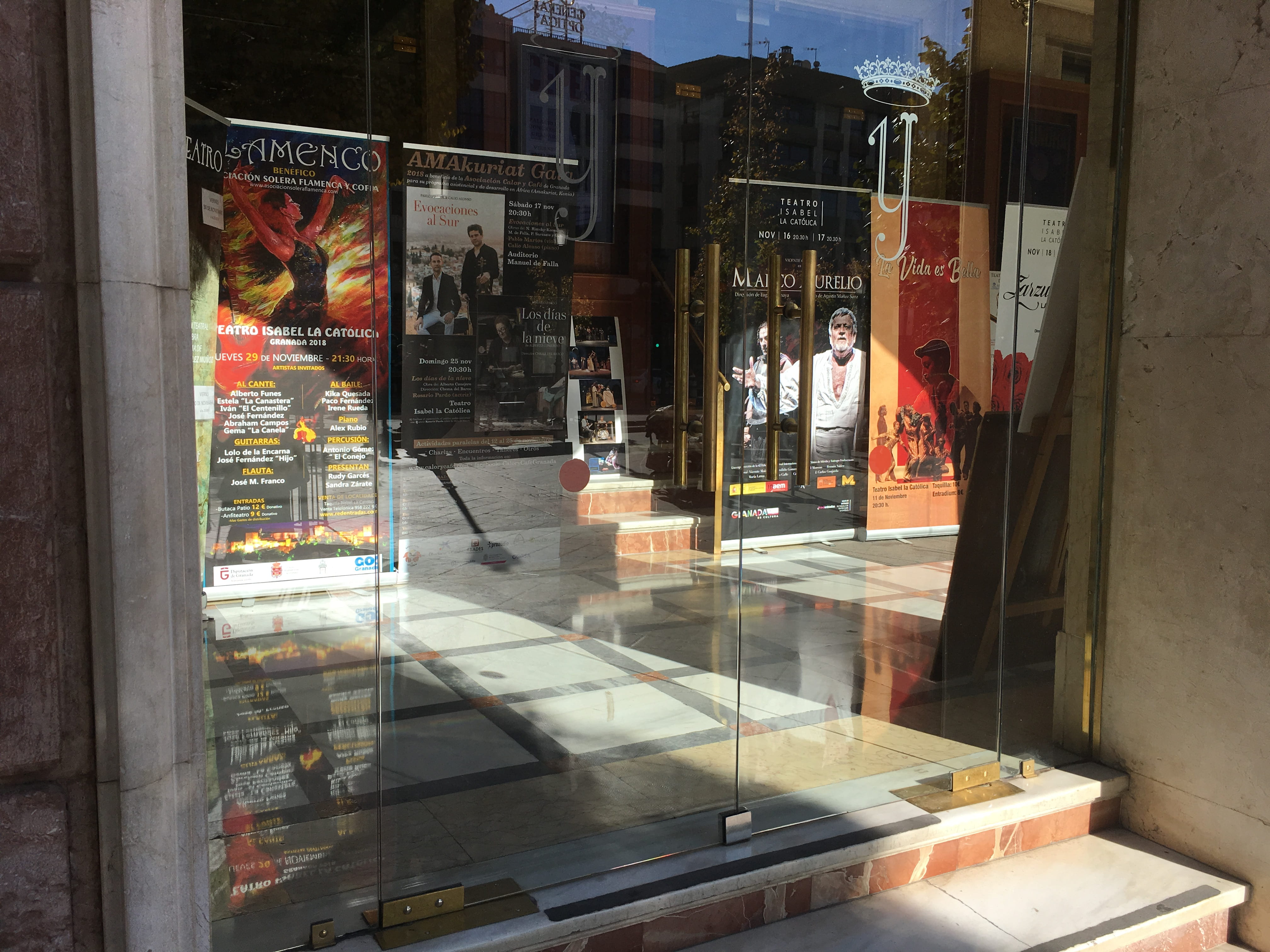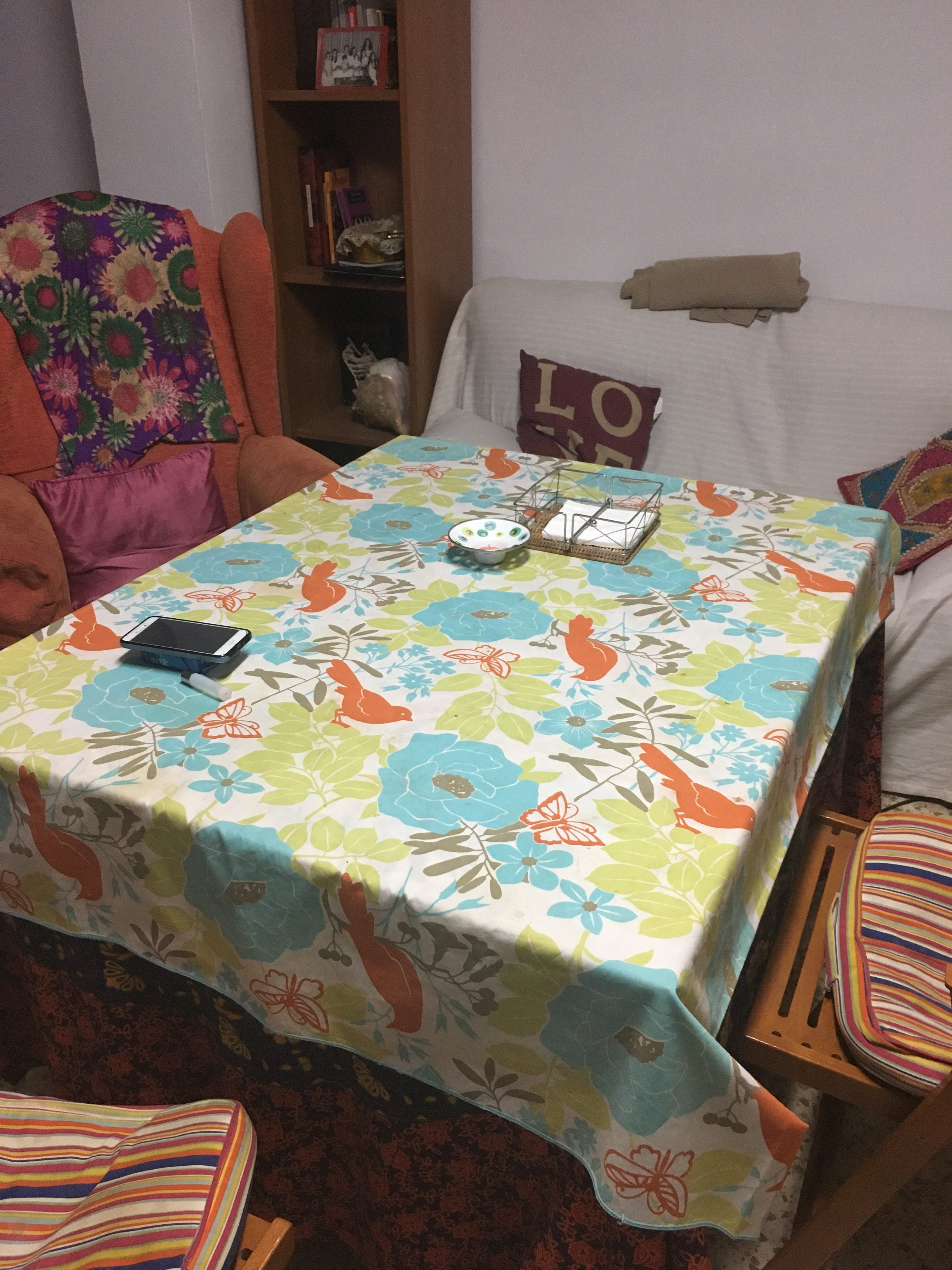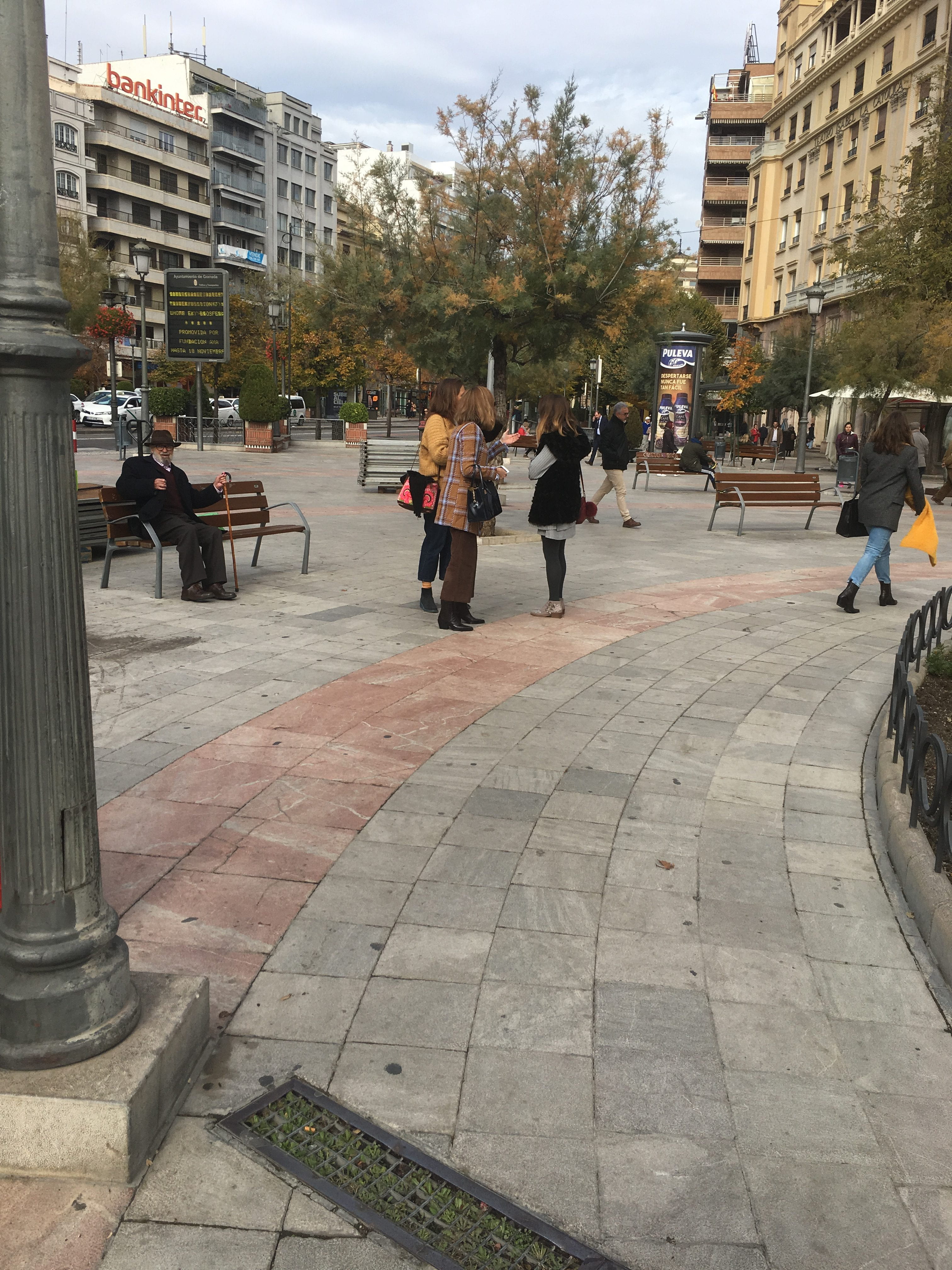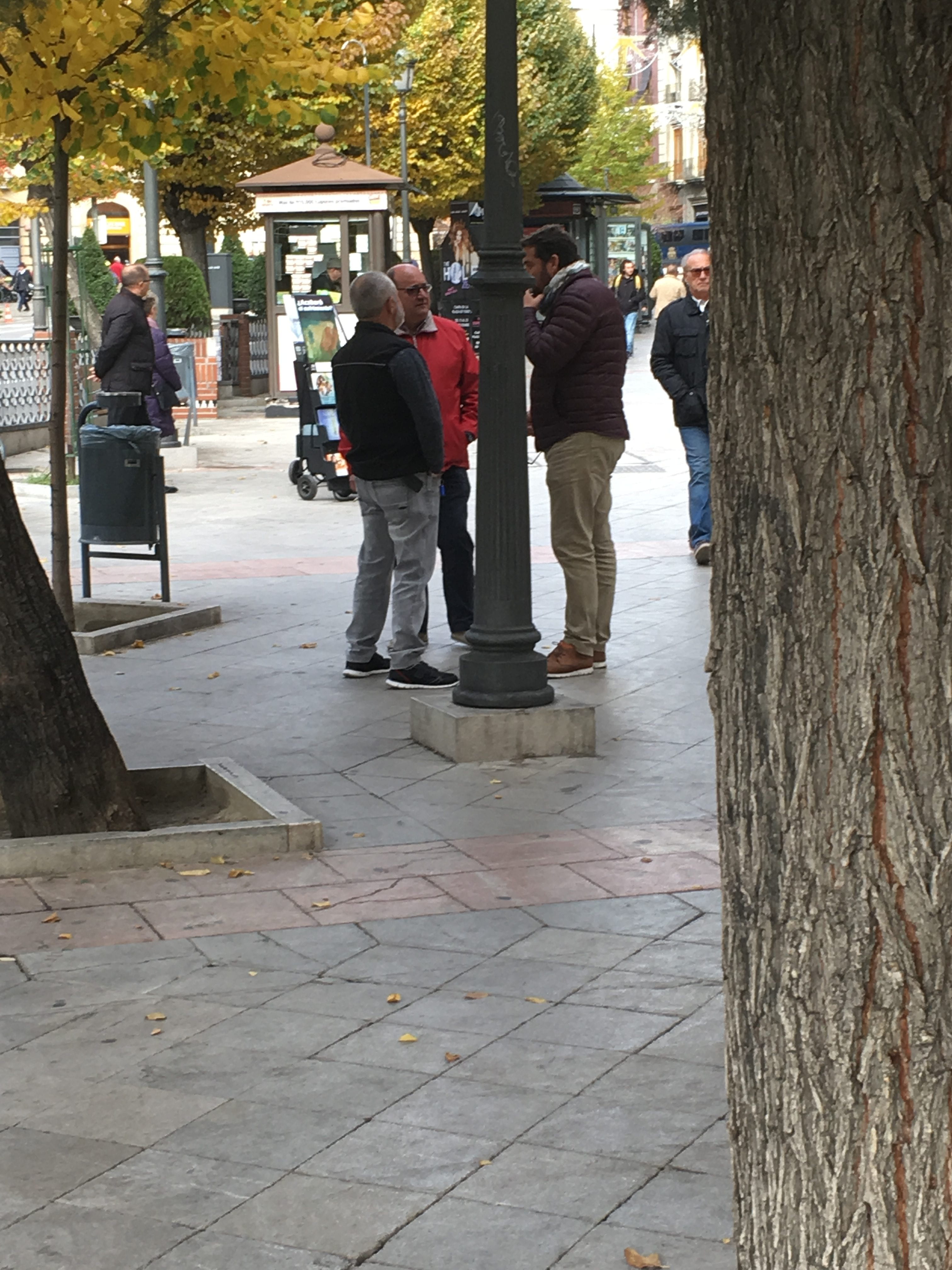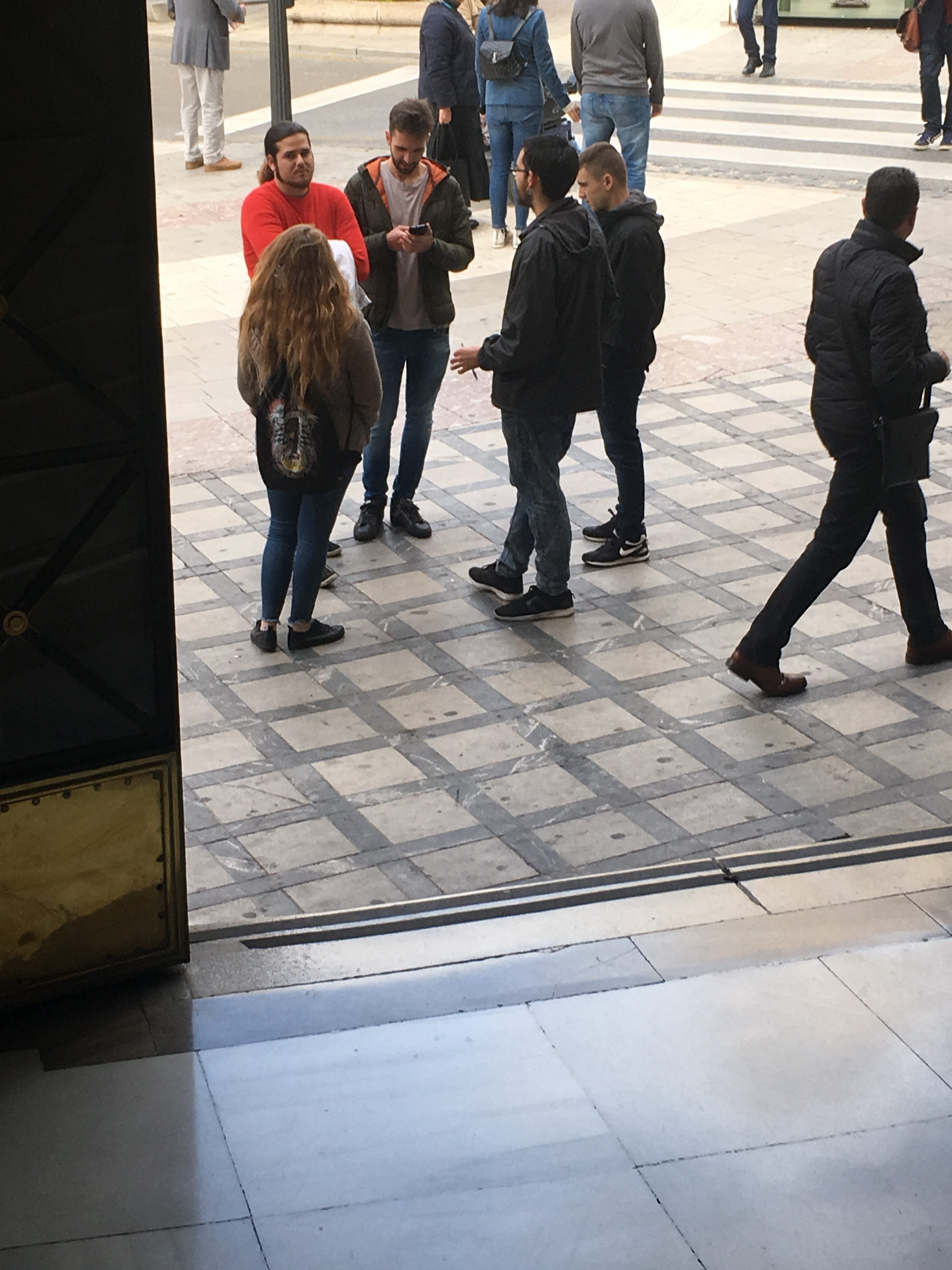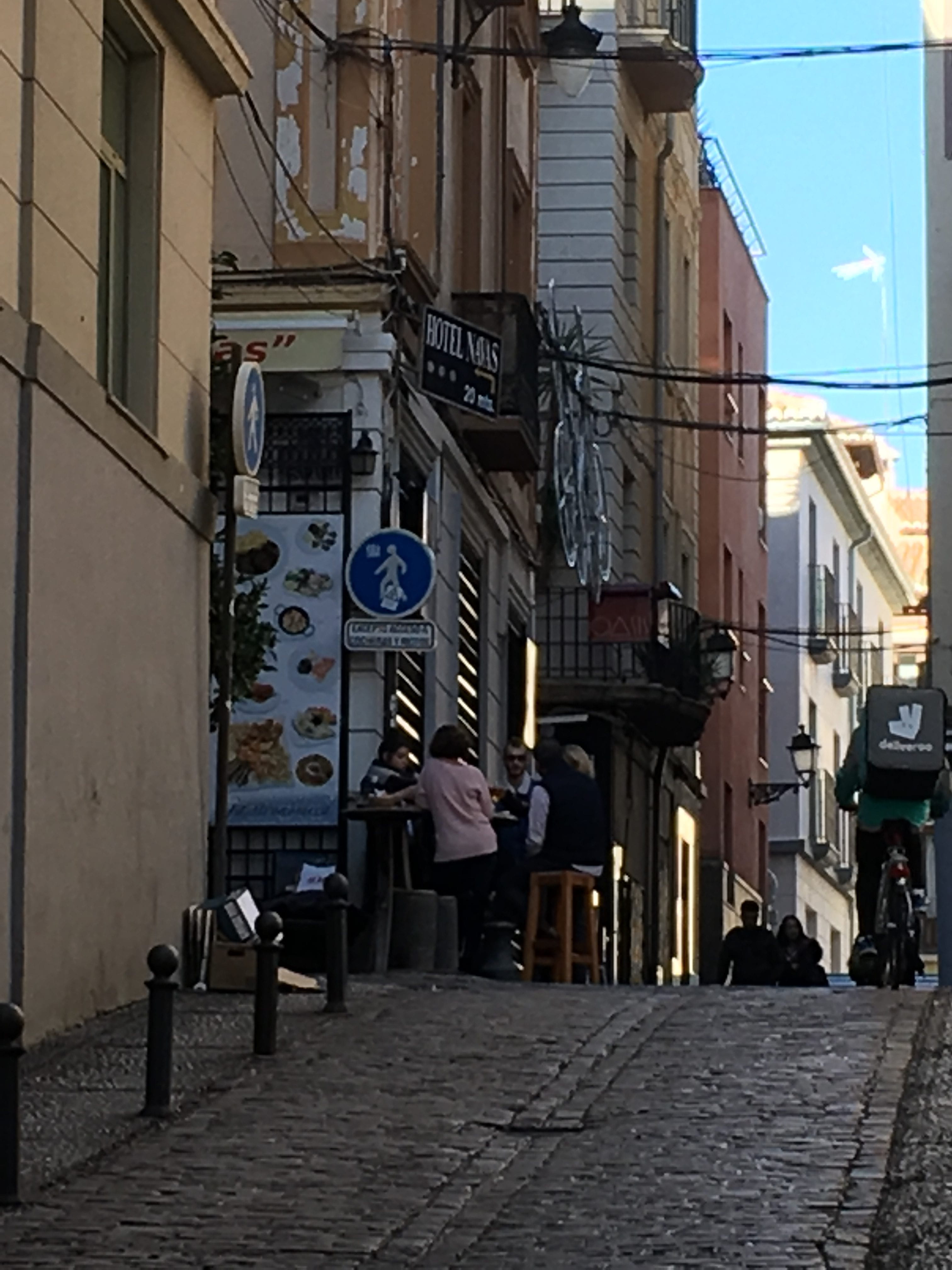Possessing Language
“No way, I can’t go to the store by myself! My Spanish is not that good…no one will understand me! Please come with me!” I blurted this out to my friend Zaq in my hotel room before heading out to get some more toothpaste. He gave me a rosy smile and said “No, I know you can do it.” I shook my head. I put on my shoes. I made my way towards the door after sucking my teeth. I knew that I was going to face the first of the many battles I would have in Spain. These battles don’t include guns, knives, or bombs. No…my battles are with language. I have them every day and I hate to lose. I wanted to be like Zaq who could speak Spanish fluently and for about a month I would hate that I could not speak like him.
During my first few days in Spain, I was afraid to speak Spanish with locals. I tried to avoid talking to locals by going to stores with others from my abroad program like Zaq. I managed to avoid locals for two days. However, by the third night Zaq refused to come with me and I would have to speak Spanish. My heart was pounding that night as I entered the store. While inside, I immediately scanned the place until I found the toothpaste. Next, I had to pay, and the sales clerk said quickly, “¿Nada más?” (“Nothing else?”). I waited a moment before responding and finally understood what she said. I replied “Sí, sí” (yes, yes), handed her the money, and left the store. I won my first language battle because both of us were able to understand one another in Spanish. I was proud and told my friends back home. I was on my way to becoming more confident in my Spanish speaking skills.
After my first purchase I knew I could no longer rely on others and I would have to shop alone. So, I usually prepare a list of items (in Spanish) that I need before going to the store. I often tried to make sure my pronunciation was perfect to avoid confusion or being corrected. However, I lost many language battles because I had trouble pronouncing the names of some items like los auriculares (headphones). I hated the confusing stares/looks I got when a native speaker couldn’t understand me. I hated when they switched to English because they don’t understand what I am saying. I wondered if non-English and Spanish speakers in New York felt that way. In the city, it’s so easy for me to just get what I want, and it never occurred to me how going to the store could be a challenge for non-English speakers. For me, it’s frustrating not always being understood in Spanish. Those first few weeks going to the store were really challenging.
These language battles don’t just occur at the store; they also happen over the phone. I recall having trouble asking a Spaniard questions about a hotel reservation via a phone call. Things got so confusing because we were speaking Spanglish over the phone. My language proficiency was not high enough to ask the right questions in Spanish. In addition, the Spaniard I spoke to did not speak English very well either. Therefore, we had a tug of war between English and Spanish until the Spaniard grew tired and found an English speaker to assist me. I considered this a loss, because I was not understood in Spanish only and I really wanted to be understood. I remember being so frustrated and feeling helpless. I recall thinking that I need to practice more.
Aside from talking over the phone, I also realized that even humor was hard to do in Spanish. I love cracking jokes, but I don’t possess the language to not only produce jokes, but to understand them completely. Many times, I wanted to enter a theater and see a play in Spanish, but I’m sure I will only understand 60% of what is said. Not to mention, I stay with a host family and often they joke, but I can’t chime in because I don’t understand. I remember following the conversation at dinner well until my host brother said something fast and everyone started laughing, but me. I had no clue what was said. I lost this battle, too, because the conversation at dinner suddenly sped up.
Sometimes I get so exhausted using Spanish that I just interact with other English speakers in my program. Whenever we go out to restaurants, I sometimes just rely on one of the other students to ask for the bill or to ask for more food and drinks. I often dine outside, and I can see Spaniards clumped together on the sidewalk in a circle talking. I’m always curious to know what they’re talking about, because it seems interesting or intense. When I first arrived, I thought about joining those circles, but my lack of language skills has kept me away. I’m still a little nervous and I want to avoid sounding silly, so I usually speak to other students learning Spanish.
It wasn’t until about four weeks in that I realized making mistakes was okay. One day in my Spanish culture and civilization course, my professor discussed language in Spain. She told the class that different dialects in the Spanish language can be difficult for Spanish speakers to understand. In addition, English for her was difficult and she has been learning English since she was a kid. She told us that there are many phrases in English that she still doesn’t understand and words she doesn’t remember how to say. She was very honest, and I realized that even someone who has been learning English for so long and uses it often has trouble speaking. I realized she was not the only one, because I began talking to other native Spanish speakers and I realized that, for them, speaking any language—mother tongue or not—is difficult. I began reflecting on experiences I had when speaking English. I realize that I also have had these same battles even in my mother tongue. I recall times when I said something using New York slang and my American peers from Wisconsin, Kentucky, or Oregon didn’t understand what I meant. I had to explain myself to them. I’m learning that to be understood takes time and is a life process.
All those times I grew frustrated at the store, over the phone, and with local Spaniards who were telling jokes were a part of learning process. Making mistakes when I speak Spanish is natural and I learn from them. Basically, I’m okay now with losing those battles because that’s the only way I will improve my Spanish. Not to mention, there is no need for me to desire to be like my friend Zaq, because I’m sure even he loses language battles at times. I have decided to try and enter a circle and to talk and make mistakes. I know now that to be understood and to be confident when one speaks is a lifelong process. I understand that I must be patient and allow the language to come with time.
